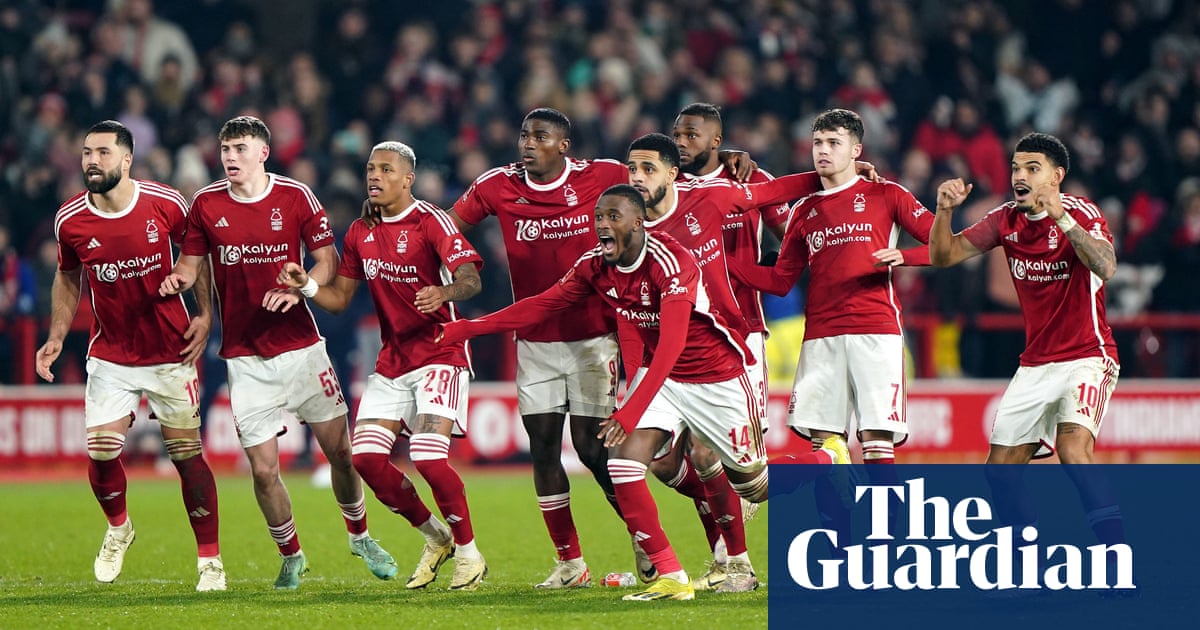
Every year the question is asked: what is the point of the FA Cup, why should we care? This is not the Premier League, with its slick production values, glamorous stars at every turn and sense of dramatic urgency. There’s no great sense that it matters: you lose, you’re out and it has no bearing on the race for fourth. You win the thing and your manager still gets sacked a few days or weeks or months later – between 2012 and 2018, Arsène Wenger was the only FA Cup-winning manager still to be in his job a year later.
Yet it remains a tremendously democratic institution and, amid everything else – the landmark final, the money it diverts down the pyramid, the chance it offers smaller clubs for a day to mark indelibly in their history (the time we won at Burnley, the afternoon we drew with West Ham, the night we played at Everton …), it offers a reminder of games that used to be. And for fans of a certain age, disillusioned by the transformation of clubs into commercial vehicles or tools of soft power, nostalgia may be the most important thing we have left: it’s the only thing to look forward to – the past.
It was 44 years ago on Tuesday that Nottingham Forest claimed their first major trophy of the Brian Clough era, winning a League Cup final replay against Liverpool, the team they face in an FA Cup quarter-final on Sunday night.
Getting to a replay had been a matter of some fortune. Forest were without three cup-tied players, including Peter Shilton, which meant a start in goal for Chris Woods who, at 18 years and 124 days, remains the youngest goalkeeper to play in a Wembley final. With Colin Barrett injured and John McGovern struggling through with a tight groin, Liverpool dominated but were thwarted by the brilliance of Woods.
“He kept his cool,” wrote John Lawson in the Nottingham Evening Post, “revealed the immense natural talent that he possesses and stole the hearts of a Wembley crowd as well as headline acclaim.”
Before the replay at Old Trafford, Clough’s assistant, Peter Taylor, took the squad to Scarborough, ostensibly to relax them, although the trip served a useful secondary function in helping him move some furniture up to an apartment he had bought there. Unorthodox, perhaps, but it stressed that Forest were outsiders, that they did things differently, that they were rebels against the establishment.
Clough was somebody who always scorned tactical discussion, but it is remarkable how often at key moments he or Taylor would make a significant tweak. McGovern’s groin was too sore to be risked and so he was replaced by John O’Hare. That pushed John Robertson into a deeper role, giving Forest a more compact shape that helped cut off the supply to Kenny Dalglish, a cautious, patient approach that would offer the blueprint for the European success to come.
Woods made early saves from Phil Neal and Dalglish and Alan Kennedy had an effort ruled out for handball before Robertson got the only goal with a 53rd-minute penalty after Phil Thompson had tripped O’Hare.
It was, Thompson admitted, “a professional foul”, and today it would be a clear red card, but Liverpool were furious. “I knew he was outside the area when I kicked him,” Thompson said, while Tommy Smith dismissed the performance of the referee, Pat Partridge, as “bloody ridiculous” and suggested he “should be shot”.
The temptation is to see all this as another world, a knockabout place without VAR when nobody had heard the phrase “denying a goalscoring opportunity”, when players acted as removal men and frustrated defenders could call for the assassination of referees without fearing some social media warrior might take them seriously, when Nottingham Forest could be a major club.
But the modern game was beginning to emerge. As early as 1969, Maurice Edwards had written in the Derby Evening Telegraph of “a super league within Division 1” that was beginning to pull away from the rest.
There were no funds – hedge, sovereign wealth or public investment – and no oligarchs, but there was an awareness that as football’s popularity grew and, thanks to Match of the Day and England’s World Cup win, it became mass public entertainment, there was a risk that a self-perpetuating elite would emerge.
Edwards was right. He named Liverpool, Leeds “and others”. If you assume by that he meant Arsenal, Everton and Manchester United, 30 of the next 35 league titles would be won by that five-team elite before Roman Abramovich’s Chelsea broke the sequence. Of the other five, one was won by Aston Villa, in 1969 still the joint-third most successful side in English history; one by a Blackburn fuelled by the millions of Jack Walker; two by Derby, once under Clough and once in effect by the team he had left behind; and one by Forest. Clough’s genius held off almost single-handed the emergence of an elite group of super-clubs for a decade.
Forest had no wealthy backers. In 1977, they were run by a committee headed by the chairman, Brian Appleby, a lawyer, and his deputy, Stuart Dryden, a sub-postmaster. Forest were constantly short of cash, which led to the gamble in 1979-80 on building the Executive Stand at a cost of £2.5m. When the signings of Justin Fashanu, Peter Ward and Ian Wallace didn’t work out, the repayments proved a crippling burden.
The decline of Forest from European champions to top-six challengers in the 80s tends to be put down to Clough’s falling out with Taylor, and that clearly was a major factor, but so, too, were basic issues of finance. Of course mistakes have been made, some of them major, and, of course, things might have been different had different decisions been taken, but Forest’s post-Clough decline has essentially returned them to the status they held before he took over.
Their improvement under Steve Cooper has brought FA Cup wins over Arsenal and Leicester, already created memories that will be treasured by this generation, but Sunday is the reminder of another time, that more innocent age when one extraordinary manager could still hold back the tides of economic history.












